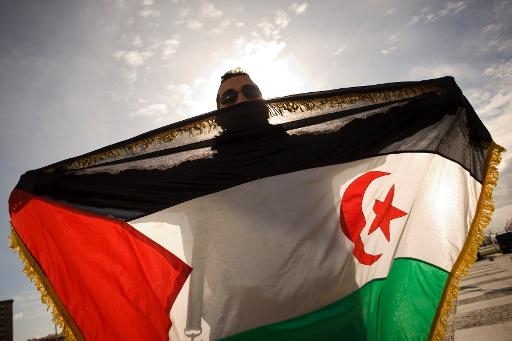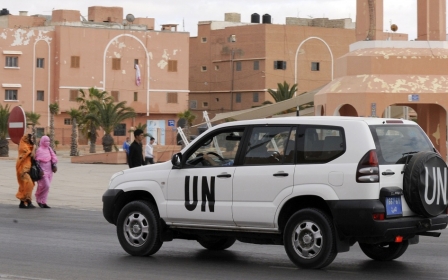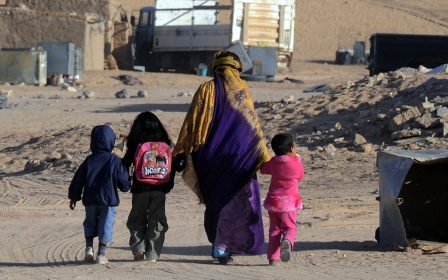HRW: Moroccan human rights gestures in Western Sahara a 'fig-leaf'

Human Rights Watch has accused the US and France of “inaction” on the issue of Western Sahara in the diplomatic sphere, while on the ground Morocco continues to imprison activists from the region after “unfair and politically-driven trials.”
The UN Security Council voted on Tuesday not to include human rights monitoring in the mandate of its peace-keeping mission in the disputed territory of Western Sahara.
In a statement to MEE, Eric Goldstein, deputy director of the organisation’s MENA division, called the decision “disappointing.”
“The US and France use Morocco’s gestures on human rights as a fig-leaf”, he said, while in reality human rights violations continue unabated.
He questioned the UN’s approach to the its peacekeeping in the region, which since 1975 has been disputed between Morocco on one side and a combination of indigenous activists and the Algerian-backed Polisario Front on the other.
Stay informed with MEE's newsletters
Sign up to get the latest alerts, insights and analysis, starting with Turkey Unpacked
According to Goldstein, the vast majority of UN peacekeeping missions include a human rights monitoring mechanism.
Western Sahara will remain the exception to this rule, at least until the issue comes up for discussion again in April 2015.
Security Council had faced concerted lobbying from rights groups in the run-up to Tuesday’s debate, with Morocco’s old ally France coming under particular attention.
After Tuesday’s vote, Moroccan officials welcomed the decision.
In a statement, the Ministry of Foreign Affairs congratulated members of the Security Council for distancing themselves from the “dangerous recommendations, provocative insinuations…and dangerous options” included in a recent report by Ban Ki-moon.
In the report, the UN Secretary-General had recommended “sustained” human rights monitoring in Western Sahara.
Meanwhile, activists have been voicing a loss of respect for UN mechanisms.
Khalil Asmar, a campaigner from Western Sahara, slammed France’s decision to vote down human rights monitoring, saying it proved that “human rights is only a game of the powerful.”
Senia Bachir, another young activist, said of the vote “no one should be afraid of justice unless they have dirty laundry”, an allusion to Morocco’s poor human rights record in Western Sahara.
Others have hinted that, with a seeming unwillingness among UN heavyweights to effect change in Western Sahara, those calling for self-determination may turn to other methods.
Days prior to the vote, the leading Western Saharan rights activist Brahmin Dahane called on British travellers to boycott holidays to Morocco, owing to its plundering of the region’s natural resources.
Middle East Eye delivers independent and unrivalled coverage and analysis of the Middle East, North Africa and beyond. To learn more about republishing this content and the associated fees, please fill out this form. More about MEE can be found here.



